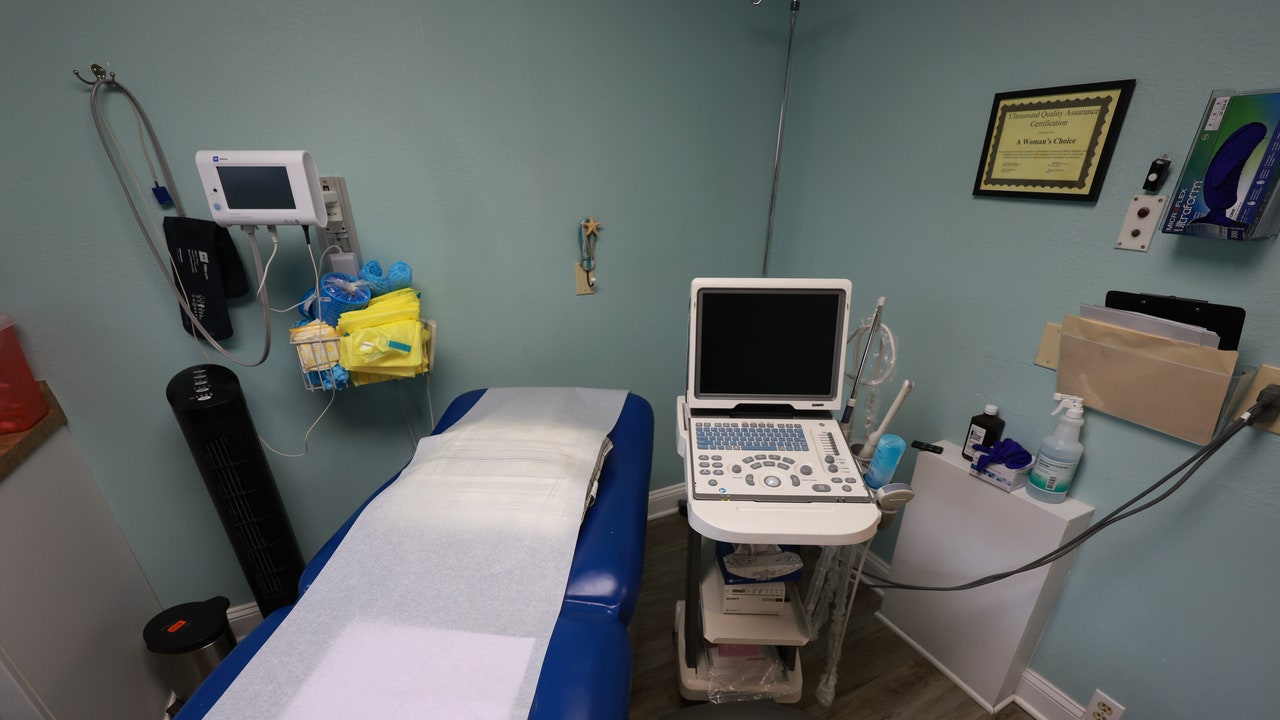Inside the First Month of Florida’s Abortion Ban
Even people who know about the law might face challenges to get an abortion due to the clinic’s limited capacity and lack of available trained personnel. Woman’s World Medical Center can only provide abortions on Mondays and Saturdays, the only days their doctor is available. And, sometimes it’s too early to detect a pregnancy via ultrasound, which can impede abortion care.
“We’ve had a lot of patients who know about the law and come in early. But it’s so early —because they tested positive — that we can’t see anything in them so we have to send them home,” Dye says. In Florida, patients seeking an abortion are required to get an ultrasound first, even if it’s not medically necessary, according to the Guttmacher Institute. The Cleveland Clinic notes that an embryo can be detected via ultrasound as early as six weeks — meaning earlier ultrasounds might miss it.
While Florida was once a more lenient option among Southern states that had completely banned abortion, patients in the region may now need to travel, according to some estimates, upwards to 1000 miles to get an abortion.
North Carolina — now the most lenient state in the region— currently has a 12-week abortion ban. And while many patients have already sought care in the state, North Carolina also enforces a 72-hour waiting period, which Stephanie Loraine, executive director of Florida Access Network, the largest abortion fund in the state, says increases the logistical and financial burden for people seeking abortion in that state. “That doesn’t make it accessible for everybody who may need the support,” Loraine told Teen Vogue.
Because of this, most of the abortion funds (organizations that help people pay for and, at times, travel to get an abortion) that Teen Vogue reached out to agree that places like Philadelphia, Virginia, Illinois, Maryland and Washington D.C. are more viable alternatives despite the higher travel distances.
“We are very busy. It’s been a very hectic month with a lot of demand coming our way,” says Christine Montero, a helpline coordinator with the Access Reproductive Southeast (ARC-Southeast) abortion fund.
ARC-Southeast provides financial and logistical support for people in Florida, Georgia, Alabama, Tennessee, Mississippi, and South Carolina. They serve one of the most restrictive regions for abortion care in the country
“Even before the ban went into effect on May 1, the demand was high, and we were helping a lot of folks from Florida,” she says. “But right now it is, there’s just been a massive surge.”
“We’re talking about people who are coming from the most southern parts of the United States, it’s not just a simple drive away,” says Vic K, a helpline coordinator with ARC-Southeast who asked that only the first letter of their last name be used for privacy.
Most people seeking ARC-Southeast’s support are Black, Indigenous, Hispanic, and Latinx, K says, communities that are disproportionately impacted by abortion bans. They also tend to already have children, K says, making the logistical and financial burden of traveling out-of-state even higher.






Leave feedback about this